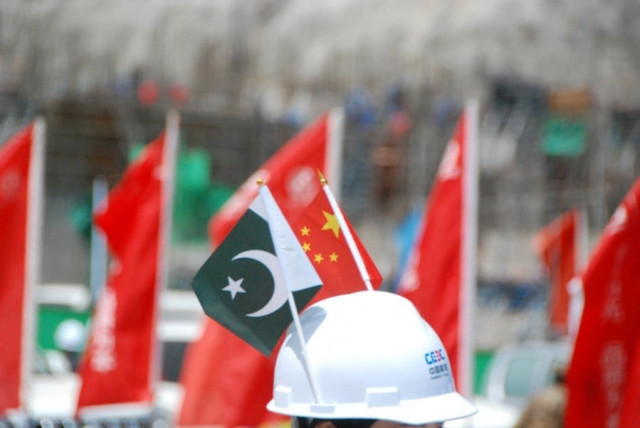Beijing:
Pakistan and China held conversations about the alignment of their cooperation in nuclear energy and spatial research with broader development objectives.
Development occurred as Minister of Planning, Development and Special Initiatives that Ahsan Iqbal met with the Chinese Atomic Energy Authority and the president of the China Space Agency, Shan Zhongde.
“The meeting focused on aligning cooperation in nuclear energy and space research with broader national development objectives,” said a statement.
Iqbal acknowledged that the Economic Corridor of Pakistan (CPEC) of China has played a vital role in the elimination of bottlenecks in the Pakistan infrastructure and energy sectors.
He pointed out that the collaboration between Pakistan and China in the nuclear energy sector continues to grow. The K-2, K-3 and C-5 nuclear power plants are brilliant examples of this strategic cooperation.
Speaking about the impacts of climate change, the minister emphasized the urgent need to adopt alternative energy sources.
He pointed out that climate change has forced the world to explore alternative energy roads to address vulnerabilities in food safety, water, medical care, agriculture, mineral resources and other key sectors of the economy.
He said that under the leadership and vision of Prime Minister Shehbaz Sharif, Pakistan’s space program has won a new impulse.
Highlighting the “Uraan Pakistan” initiative, he said that a special approach to advanced space sciences was being given.
Recently, he said, Pakistan successfully launched three satellites with the cooperation of China, adding that “Pakistan will send his first astronaut to the Chinese space station in 2026”. IQBAL also shared that the Pakistan Space Agency, Supparco, has been in charge of launching a lunar mission by 2035.
He stressed that Pakistan had a highly qualified human resources group at a relatively low cost, from which China could benefit from improving their abilities through collaboration.
The minister stressed that Pakistan has established a quantum computer center in response to emerging technological challenges.
He emphasized the importance of strengthening the Association of Research and the Exchange of Knowledge between CAEC, Supparco and the Pakistan Atomic Energy Commission, for the peaceful use of technology.
The minister pointed out that the Government has initiated a national program to align the sectors of science, technology and engineering with the development objectives of Pakistan.
He emphasized the need to expand opportunities for young Pakistani scientists to receive higher education in space technology through Chinese exchange programs.
President Zhongde appreciated the valuable contributions of IQBAL to the progress of CPEC.
He said that Pakistan and China enjoyed strong geostrategic relations that have now become deeply rooted economic cooperation.
He said that China was ready to extend full cooperation to Pakistan in the field of space research, adding that both countries were committed to the peaceful use of nuclear energy.




